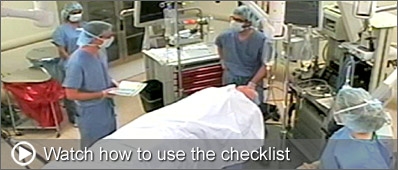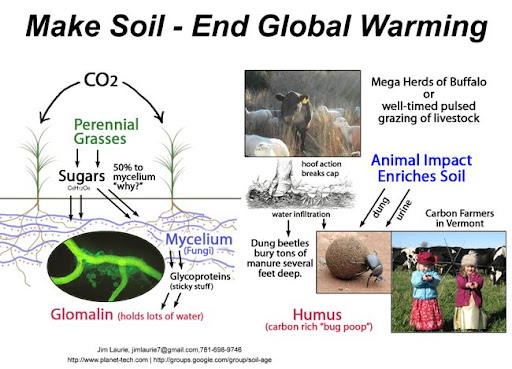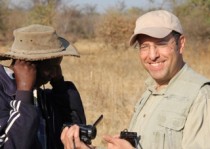You are here
Surgical Safety Checklist

A recent study published in the New England Journal of Medicine shows that the pre-surgery safety checklist developed by the World Health Organization is significantly effective in reducing complications, including death, during surgery. The study utilized data from hospitals in eight different countries and the strength of the results have led hundreds of health organizations and societies to push for rapid and widespread implementation. According to the WHO, every year 7 million patients suffer complications following surgery, half of which are likely to be preventable. Before now, many operating rooms used safety checklists, but there was a lack of consistency and quality in the practice.
The Checklist involves the coordination of the operating team – the surgeons, anesthesia providers, and nurses – to discuss key safety checks prior to specific phases of perioperative care: a “Sign In” prior to induction of anesthesia, a “Time Out” prior to skin incision, and a “Sign Out” before the team leaves the operating room. Many of the checks are already routine in some institutions, but surprisingly, few operating teams accomplish them all consistently, even in the most advanced settings. We hope to show improvements in both the process and the outcome of care using our pilot sites to evaluate the Checklist.
World Health Organization
Avenue Appia 20
1211 Geneva 27
Switzerland
Telephone: + 41 22 791 21 11
Facsimile (fax): + 41 22 791 31 11
From: HPM Safe Surgery
Date: Fri, Aug 14, 2009 at 4:23 PM
Subject: Re: Photo Permission Request
- Hide quoted text -
To: cethornton@gmail.com
HI Christine,
So sorry that this took forever to get to you! Its just that our
counterparts at the WHO are very particular about where their logo can go etc. So we were not granted permission to use their logo or their photos. But we have a pretty basic logo of our own, it is attached.
Thanks again for your patience, and if you need anything else- please
don't hesitate to email me.
Sincerely,
Priya Desai
Project Coordinator
Safe Surgery Saves Lives
Harvard School of Public Health
- Log in to post comments



